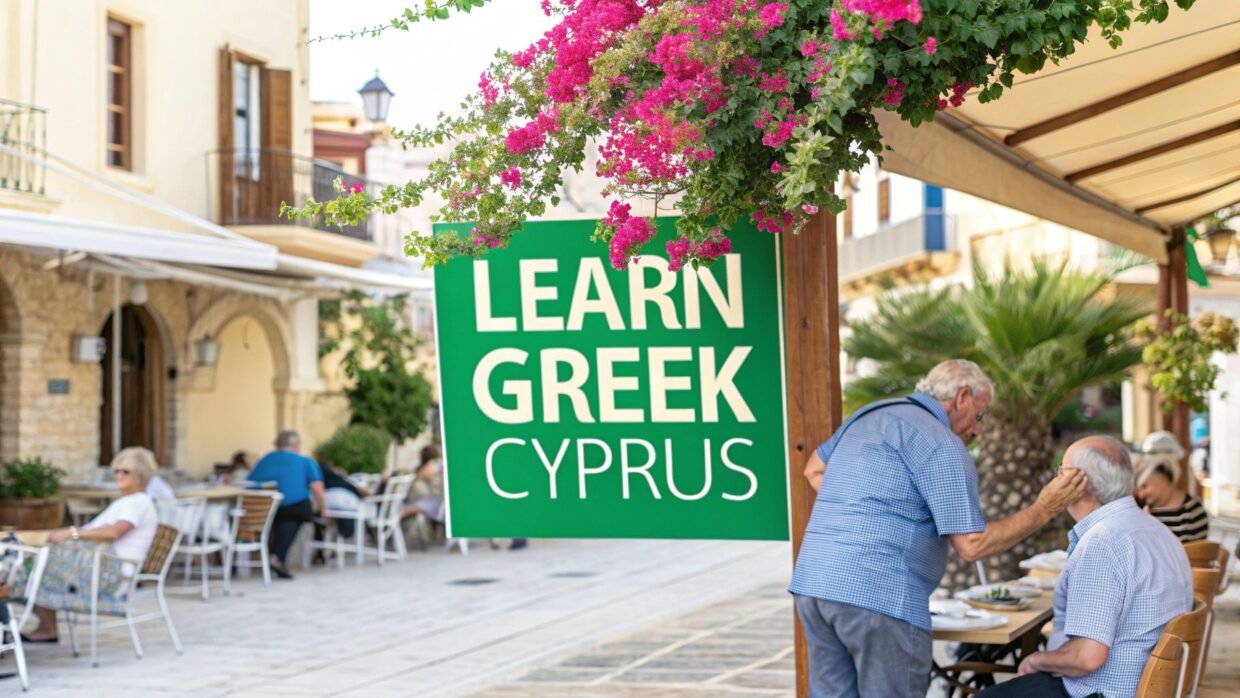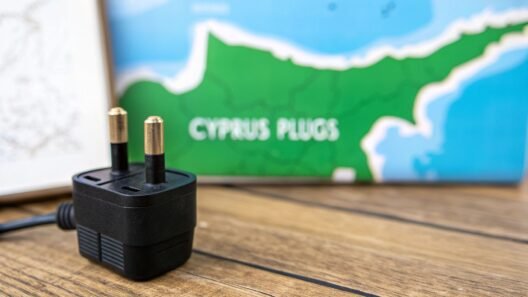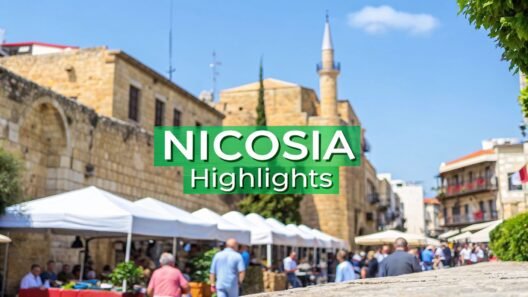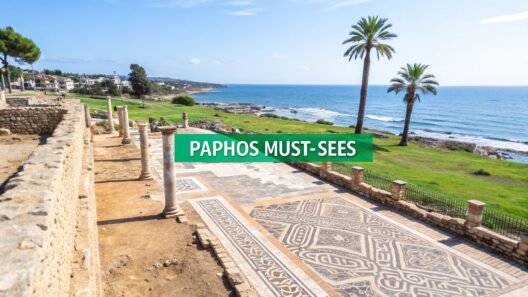Deciding to learn Greek in Cyprus is a fantastic move, whether you're here for work, family, or just drawn in by the island's charm. But to really succeed, you need to grasp one crucial thing right from the start: the Greek you hear on the street isn't always the Greek you'll find in a standard textbook.
This isn't meant to be intimidating, just a heads-up. Getting your head around this from day one will make your entire learning journey smoother and far more rewarding.
Kicking Off Your Greek Language Journey in Cyprus
So, you're ready to dive in. Your first task is to understand the two main "flavours" of Greek you'll encounter. On one hand, you have Standard Modern Greek. This is the official language, the one used in government documents, schools, and the nightly news. It's what most formal courses will teach you.
On the other hand, you have the Cypriot dialect. This is the language of the heart, the everyday chatter you'll hear in a village kafeneio or at the local market. It’s packed with history and local character.
Many newcomers hit a common wall. They study hard, master their grammar in the classroom, and then step outside to order a coffee and feel completely lost. It happens. The trick is to have a clear plan from the get-go.
First, What’s Your “Why”?
Before you even crack open a book, ask yourself why you're learning Greek. Are you here for a short-term work contract? Planning to retire and integrate into a local community? Or maybe you're connecting with family heritage?
Your answer shapes your entire approach. If you're dealing with official paperwork or business contracts, Standard Modern Greek is your priority. But if you want to chat with your neighbours and truly feel part of the local scene, you'll need to embrace the Cypriot dialect.
This visual guide can help you figure out which path makes the most sense for your goals.
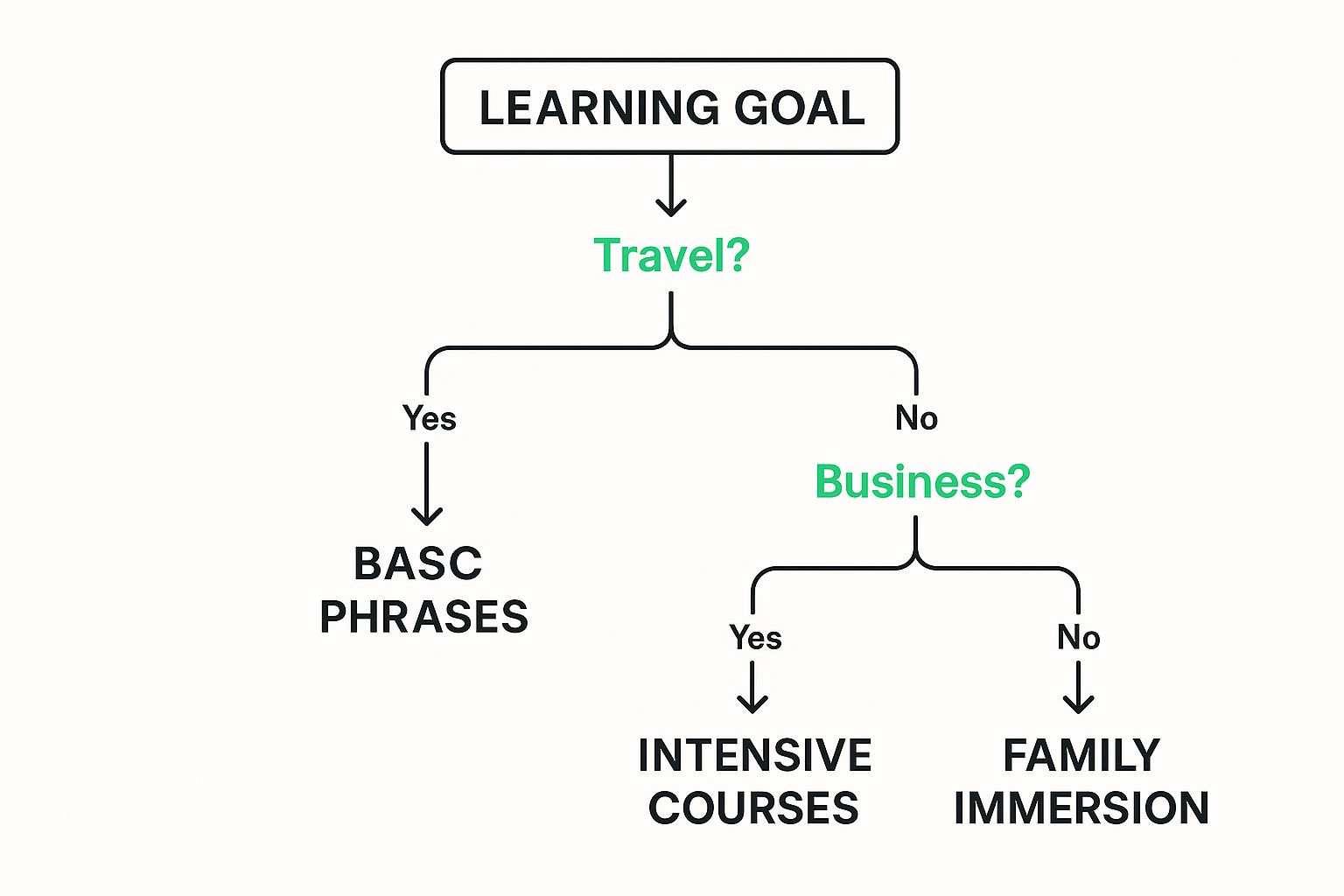
As you can see, matching your learning method to your motivation—whether it's for travel, business, or deeper cultural connection—is the smartest way to get the results you're looking for.
Choosing Your Greek Learning Path in Cyprus
Different goals call for different strategies. This table breaks down the most common learning paths to help you decide which one fits you best.
| Learning Goal | Best Approach | Focus Language | Typical Time Commitment |
|---|---|---|---|
| Basic Tourist Communication | Mobile apps & phrasebooks | Cypriot dialect basics | A few hours before & during trip |
| Professional/Business Needs | Formal language school/tutor | Standard Modern Greek | 6-12 months for proficiency |
| Social Integration & Daily Life | Combination of formal classes & immersion | Start with Standard, add Cypriot dialect | 1-2 years for fluency |
| Connecting with Heritage | Community classes & family practice | Cypriot dialect | Ongoing, lifelong learning |
Ultimately, the best approach is often a blend. Starting with a solid foundation in Standard Greek gives you the rules of the road, while actively learning the dialect helps you navigate the local highways and byways of conversation.
The UK Connection and a Strong Educational Base
For many, especially those from the UK, the path to learning Greek is well-supported by deep cultural and educational ties. Cyprus has a bilingual education system; while Greek is the main language in the Greek Cypriot community, English is widely spoken and taught, a legacy of the island's history.
This connection is reinforced by the large Greek Cypriot diaspora in the UK, numbering around 300,000 people, with a major hub in London. They keep the language alive through community schools that offer Greek lessons, helping younger generations maintain their linguistic and cultural heritage. You can explore more about these language trends and see how this vibrant network supports learners both on and off the island.
Key Takeaway: Think of it this way: Standard Greek is your foundation, but the Cypriot dialect is what will truly open doors. Don't see them as competing choices. The most successful learners build a solid base in formal Greek and then enthusiastically sprinkle in Cypriot words and phrases to connect with people on a genuine, everyday level.
Finding the Right Greek Language Course in Cyprus
So, you're ready to learn Greek in Cyprus. This is a huge, exciting step, but choosing where and how to learn can feel a bit overwhelming. The island is packed with options, from formal university programmes to casual one-on-one tutoring, and the path you pick will really shape your entire experience. It's not just about finding any class; it's about finding the right environment for you and your goals.
For instance, a private language institute might be your best bet if you need a structured curriculum. They typically focus on Standard Modern Greek, which is perfect if you’re aiming for professional or academic fluency. These schools usually have set timetables and a clear syllabus, which is brilliant for anyone who likes routine. The only thing to keep in mind is that classes can be a bit larger, and they might not always delve into the specifics of the local Cypriot dialect.
If you’d rather have a more personalised experience, private tutoring is a fantastic option. A good tutor can adapt every lesson to your personal pace, focusing on your weak spots or specific vocabulary you need for work or socialising. This is hands-down one of the best ways to get to grips with the Cypriot dialect from day one.
University Programmes Versus Community Classes
Thinking about a more academic route? The big universities, like the University of Cyprus in Nicosia, offer excellent Greek language courses. These are often quite rigorous, giving you a very deep understanding of grammar and sentence structure. They're a solid choice if you plan on further studies or need a formal certificate for your CV.
But don't write off the more local, community-based options. You'll often find government-subsidised or community-run classes that are much more affordable. More than that, they're a brilliant way to meet other expats and friendly locals. Keep an eye on community notice boards or check with your local municipality. The teaching might feel less formal, but the social side of it is a powerful motivator.
Expert Tip: Before you sign up for anything, ask one simple but critical question: "Do you teach Standard Modern Greek, the Cypriot dialect, or a bit of both?" Their answer will tell you instantly if the course is a good fit for your real-world goal of chatting with your neighbours and ordering a coffee like a local.
What to Look For in a Course
When you're weighing up your options, think beyond just the syllabus. The practical side of things is what will determine whether you actually stick with it.
- Flexible Scheduling: Does the class fit your life? If you're working 9-5, you'll need a school that offers evening or weekend lessons.
- Teaching Style: Is it all grammar drills, or do you get to practise speaking? The best courses strike a healthy balance between understanding the rules and actually using the language.
- Cost and Value: Prices can vary wildly. A private tutor costs more per hour, but you might learn faster, making it better value in the long run. Thinking about the overall cost of living in Cyprus can help you figure out a realistic budget for your lessons.
- Location and Accessibility: Is the class easy to get to? A long, stressful commute twice a week is a surefire way to kill your enthusiasm.
Ultimately, finding the right way to learn Greek in Cyprus is all about matching the method to your personality, your budget, and your reasons for learning. My advice? Visit a few places, have a chat with the tutors, and see if you can sit in on a trial class. Finding the right fit is what turns the challenge of learning a new language into an exciting and rewarding journey.
Getting to Grips with the Cypriot Dialect for Daily Life
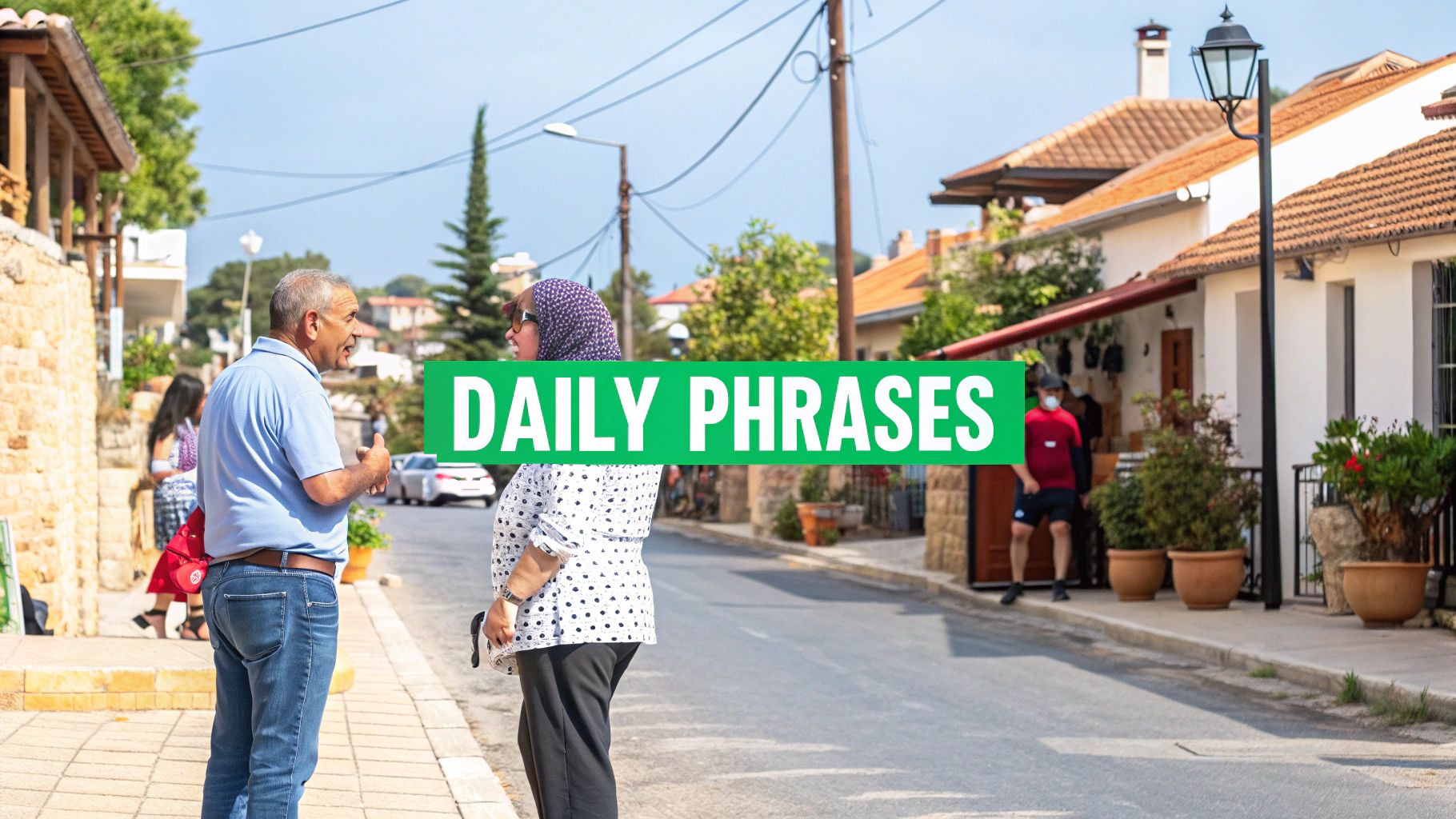
While your formal lessons in Standard Modern Greek give you an excellent foundation, the real magic of connecting with people in Cyprus happens when you start to sprinkle in the local dialect. Think of it like this: Standard Greek ensures you'll be understood, but Cypriot Greek helps you belong. It’s what turns a simple transaction into a genuine, friendly interaction.
Learning a few key phrases is your quickest way to build that rapport. The dialect isn't a completely different language, but you’ll immediately notice its unique flavour in pronunciation and vocabulary. For a deeper dive into the island's linguistic mix, you might find it helpful to read about https://saycyprus.com/what-language-do-they-speak-in-cyprus/, which explains this dynamic perfectly.
Key Vocabulary and When to Use It
Forget about mastering complex grammar from day one. Your goal is to pick up the high-impact words and phrases that locals use all the time. Simply swapping a standard word for its Cypriot equivalent shows you’re making an effort, and that’s always appreciated.
Here are a few easy wins to get you started:
- Instead of ti kaneis? (How are you?), try the more common pos eise?.
- Use indáxi instead of endáxi for "okay" or "alright." It's a small phonetic shift, but it makes a big difference.
- Say Láo for "I'm going" rather than the standard Páo. You'll hear this constantly.
- Ask for mia boukkála neró (a bottle of water) instead of ena boukáli neró. The gender of "bottle" changes in the dialect.
This hands-on approach is particularly useful for those arriving from the UK. The UK school system tends to focus on French, Spanish, and German, with Greek being less common. In the 2022/23 academic year, there were around 313,000 GCSE entries for modern languages in England. Yet, the strong historical ties and vibrant Greek and Cypriot communities, especially in cities like London, create a real demand for Greek language skills outside of the classroom.
Here’s a real-world example: You’re at a traditional kafeneio (coffee shop). Instead of ordering a coffee "medium sweet," you confidently ask for a “metrio”. Using that single Cypriot word signals you've taken the time to understand local customs. The barista will almost certainly respond with a warmer smile, and you’ve just created a small but meaningful connection.
Putting It All Into Practice
The best place to practise is where life happens. Head down to the laiki (the weekly farmer’s market) and try out your new vocabulary. When you buy your fruit and veg, say efharistó (thank you), but lead with a friendly Cypriot greeting like “Yia sou, re!”.
Don’t worry about making mistakes—your effort will be noticed and appreciated. Cypriots are famously welcoming and are often happy to gently correct you, turning a simple shopping trip into an impromptu language lesson. As you learn the language, weaving in these dialectal phrases is what truly bridges the gap between feeling like a visitor and feeling right at home.
Getting Out of the Classroom and Into Cyprus
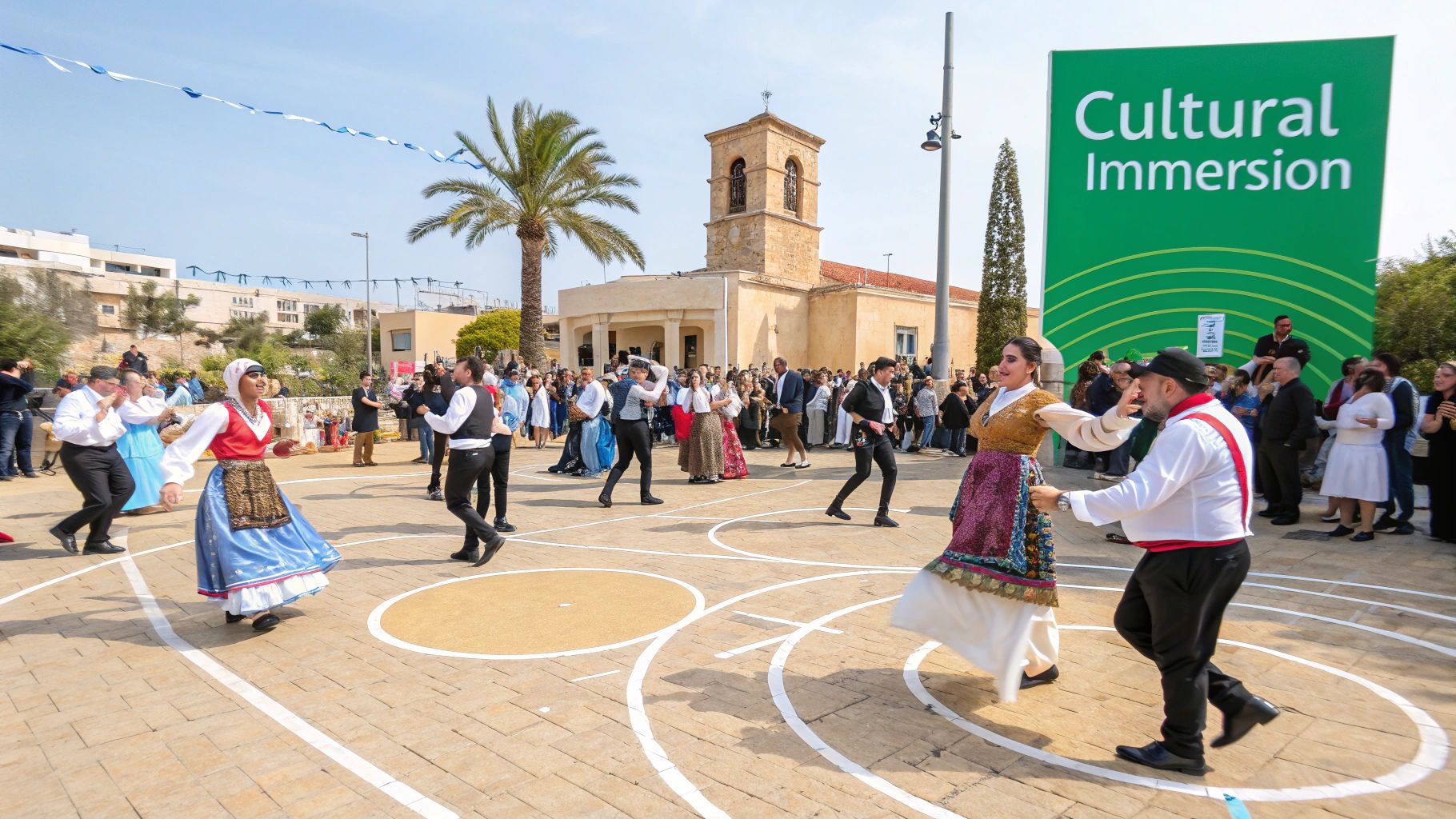
Let's be honest, real fluency isn't found in a textbook. It’s discovered over a coffee, haggling at a market, or getting directions to a hidden beach. Once you’ve got a grasp of the basics from your course, the real learning begins. It's time to create your own personal immersion bubble.
This isn't about piling on more study hours. It's about weaving Greek into the fabric of your daily life. Think of it as a mindset shift. When you decide to learn Greek in Cyprus, the island itself becomes your most valuable and patient teacher.
Surround Yourself with the Sounds of Cyprus
One of the simplest yet most effective things you can do is change your media diet. Instead of Spotify on your commute, tune into a local radio station. Let a Cypriot TV channel like RIK provide the background noise for your evening instead of Netflix.
You won't understand everything at first. Not even close. But that’s not the point. You’re training your ear to the rhythm, the cadence, and the common phrases of spoken Greek. This passive listening is fantastic for building an authentic accent and will make understanding real-time conversations much, much easier down the line.
A Quick Tip from Experience: Listening comprehension can be a huge barrier. Just letting the language wash over you, even if you're not actively concentrating, helps your brain get used to the sounds. It's like a workout for your ears, and it pays off big time.
Find Your Tribe
Nothing beats practising your Greek in a relaxed social setting where nobody is grading you. Tapping into local groups that share your interests is a brilliant way to do this.
Give some of these a thought:
- Sports & Hobbies: Are you into football, hiking, or tennis? Joining a local club is an amazing way to chat and connect with people naturally. Your shared passion becomes the focus, not your grammar.
- Cultural Happenings: Keep your eyes peeled for village panigiria (local festivals), concerts, or community events. These are the lifeblood of Cypriot culture and offer a vibrant, fun environment to practise what you know.
- Giving Back: Volunteering for a cause you care about, like an animal shelter or a local clean-up day, connects you with locals on a deeper level. You’ll be practising your Greek while doing something genuinely meaningful.
Make Every Errand a Mini-Lesson
Your daily trip to the bakery, the periptero (kiosk), or the weekly laiki (farmers' market) is a golden opportunity. Don't just point, pay, and leave. Challenge yourself to use a little Greek.
Start with the small stuff. Order your morning coffee in Greek. Ask the shopkeeper, “Póso káni aftó?” (How much is this?). I can tell you from experience that most Cypriots are incredibly friendly and will be delighted you're making an effort.
The biggest hurdle is often the fear of making a mistake. So, decide right now that you will make them, and that's perfectly okay. You can even turn it into a learning moment. A simple “Parakaló, diórthosé me” (Please, correct me) not only shows humility but can also turn a simple purchase into a quick, valuable lesson. These small, daily interactions are what build real-world confidence and a vocabulary that sticks.
To help you put this into practice, I’ve put together a simple weekly checklist. Don’t feel you have to do everything every week, but use it as a guide to push yourself out of your comfort zone.
Your Weekly Immersion Checklist
| Activity | Frequency | Key Benefit |
|---|---|---|
| Order coffee/food in Greek | 3-5 times/week | Builds confidence with essential transactional phrases. |
| Listen to Greek radio/podcast | 20-30 mins daily | Trains your ear to the natural speed and rhythm of the language. |
| Watch a Cypriot TV show or film | 1-2 hours/week | Connects vocabulary with visual cues and cultural context. |
| Chat with a neighbour or shopkeeper | 2-3 brief chats/week | Practises spontaneous, low-pressure conversation. |
| Read local news headlines or signs | Daily | Reinforces vocabulary and helps with character recognition. |
| Attend a local event (market, festival) | Once a month | Provides a rich, stimulating environment for listening and speaking. |
Trying even a few of these activities consistently will dramatically accelerate your progress. It’s about creating habits that turn the entire island into your classroom.
Using Digital Tools and Local Resources

Pairing formal lessons with the right tools can completely change how quickly you learn Greek in Cyprus. Technology offers some fantastic support, but you can’t ignore the valuable resources hiding in plain sight all around you. The real magic happens when you blend digital learning with real-world practice.
Most of the big language learning apps are great for getting a handle on Standard Modern Greek. Their structured lessons are perfect for drilling vocabulary and nailing down grammar rules. The main drawback? You’ll struggle to find any content on the Cypriot dialect. This is where you need to get a bit creative.
Curating Your Digital Toolkit
Even though popular apps might not teach you Cypriot Greek directly, they're still incredibly useful. Think of them as building your foundation—the core vocabulary and sentence structures are essential. Once you have that solid base, you can start layering on more specialised digital resources.
- Social Media Immersion: This is my favourite trick. Follow Cypriot influencers, news pages, and even meme accounts on Instagram and TikTok. It’s a free, fun way to soak up the real, everyday language and slang you’d never find in a textbook.
- YouTube and Podcasts: Search for Cypriot creators. Watching vlogs or listening to local podcasts is a game-changer for tuning your ear to the specific rhythm and accent of the dialect.
- Online Dictionaries: Keep an eye out for online dictionaries that include Cypriot words. These are often community-built and are absolute gold for looking up a word you overheard at the periptero (kiosk).
There’s a growing appreciation for Greek in all its forms. In the UK, for example, a curriculum change back in 2013 put ancient languages like Greek on the same level as modern ones in primary schools. Finding enough qualified teachers has been tricky, but it shows a deep respect for the language’s heritage. You can discover more about these educational developments and their impact on Greek language teaching in UK schools.
Tapping into Local Gems
Your phone and laptop are great, but Cyprus itself is your best classroom. Combining your digital study with real-world interaction is what separates the casual learners from the truly fluent. No app can replicate these opportunities.
Expert Insight: I've noticed the most successful language learners are incredibly resourceful. They don't stick to a single method. They're constantly on the lookout for new ways to learn, whether that's a new podcast or a chat with the baker.
Start by looking for a language exchange partner. Check out notice boards in community centres, libraries, or local expat groups on Facebook. You’ll often find a native speaker who’s keen to practise their English in return for helping you with your Greek. It’s a brilliant way to get one-on-one feedback and maybe even make a new friend.
And don't forget your local public library. Many have fantastic sections with Greek novels, newspapers, and children's books. Starting with kids' books is a fantastic strategy. The simple language and colourful pictures give you a ton of context, making new words much easier to remember.
Common Questions About Learning Greek in Cyprus
Taking the plunge to learn a new language always brings up a few questions. When it comes to learning Greek in Cyprus, you’re probably wondering about some of the practicalities. Let’s tackle some of the most common queries I hear from people just starting out, so you can begin your journey with confidence.
Is Learning the Cypriot Dialect Really Necessary?
This is the big one, and the answer isn't a simple yes or no. You can absolutely get by with Standard Modern Greek, particularly in professional settings or when dealing with officialdom. It's the language of education and business.
But if you want to truly connect with the island and its people, learning the dialect is where the magic happens. Think of it like this: Modern Greek gets the message across, but the Cypriot dialect builds relationships. Dropping a few local phrases into conversation shows you're making a genuine effort, and Cypriots really appreciate that.
My advice? Build a solid foundation in Modern Greek through your courses, and then start sprinkling in the Cypriot words and phrases you pick up from daily life. It’s the most natural way to do it.
How Long Does It Take to Become Conversational?
This really comes down to your commitment and how much you throw yourself into it. From what I’ve seen with countless learners, hitting a basic conversational level (think A2 on the European framework) usually takes about 6 to 9 months of regular study and daily practice. At this point, you'll be able to handle simple chats, order a coffee, and ask for directions without too much trouble.
If you're aiming higher, for a level where you can have more complex discussions and follow along with fast-talking locals (B1/B2), you should probably set aside 1.5 to 3 years. Of course, full immersion—like working in a Greek-speaking environment—can dramatically speed things up.
Can I Get By With Only English in Cyprus?
In the main tourist centres like Paphos, Limassol, and Ayia Napa? Yes, for the most part. English is so widely spoken there that you can manage day-to-day life without many issues.
However, the moment you step outside these bubbles or have to deal with any kind of government paperwork, you’ll find that a bit of Greek is essential. More importantly, sticking only to English puts up a wall between you and the real Cyprus. Even a basic grasp of the language opens doors to a much richer, more authentic experience and helps you form genuine friendships.
As a member of the EU, Cyprus is very international, but speaking Greek is what makes it feel like home. For more on this, our guide on Cyprus's status in the EU provides some useful background.
What Are the Best Free Resources for Cypriot Greek?
Finding high-quality, free materials specifically for the Cypriot dialect can feel like a treasure hunt, but they are out there if you know where to search.
Here are a few places I always recommend people start:
- YouTube and Social Media: This is an absolute goldmine. Find and follow Cypriot vloggers, comedians, and even news channels. It’s one of the best ways to get your ear attuned to the accent and pick up current slang.
- Online Communities: Look for Facebook groups or forums for people learning the Cypriot dialect. They’re fantastic for asking specific questions and getting answers from native speakers and other learners who are on the same path.
- Digital Flashcards: Check out apps like Anki or Memrise and search for user-made decks. You’ll often find that someone has already done the hard work of compiling lists of common Cypriot vocabulary, which you can use for free.
Combine these free tools with real-world practice every single day, and you've got a powerful, budget-friendly strategy for getting comfortable with how people really speak here.
At SayCyprus, we're passionate about helping you experience the island to its fullest. Our guides cover everything from the best restaurants to hidden cultural gems, making your Cypriot adventure unforgettable. Explore more at https://www.saycyprus.com.









